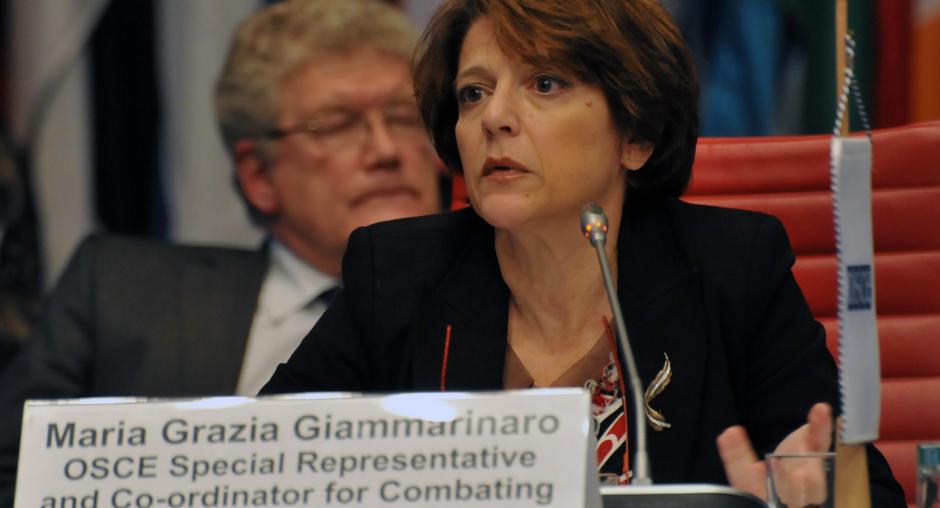OSCE Special Representative links human trafficking and migration at Bucharest conference

The OSCE Special Representative and Co-ordinator for Combating Trafficking in Human Beings, Maria Grazia Giammarinaro, focused on the links between human trafficking and migration at a major international conference on combating trafficking and protecting victims in South East Europe.
The event took place on 8 November 2012 in Bucharest and was organized by the French Foreign Ministry and the Romanian National Agency against Trafficking in Persons.
“In recent years an increasing number of migrants are being exploited in slavery-like conditions, particularly in labour-intensive economic sectors such as agriculture, construction, textiles, food processing and domestic work,” Giammarinaro said.
She called for new policy approaches to achieve more meaningful results in combating human trafficking while regulating migration. “Every aspect of migration policy should be consistent with the goals of anti-trafficking action,” she said. “Policy should include long-term measures aimed at social inclusion of trafficked persons.”
The Special Representative underlined the need for gender-sensitive migration policies, taking into account that half of the world’s 200 million migrants are women while migration policies and opportunities are still largely oriented towards men.
“I am convinced that gender-sensitive policies have a powerful impact on the prevention of trafficking and are essential to the struggle against this crime,” Giammarinaro said. “Anti-trafficking policy alone cannot be effective if it is not combined and consistent with efforts to address structural issues such as gender discrimination and inequality, and gender-based violence, which are concurrent root causes of trafficking in human beings.”
